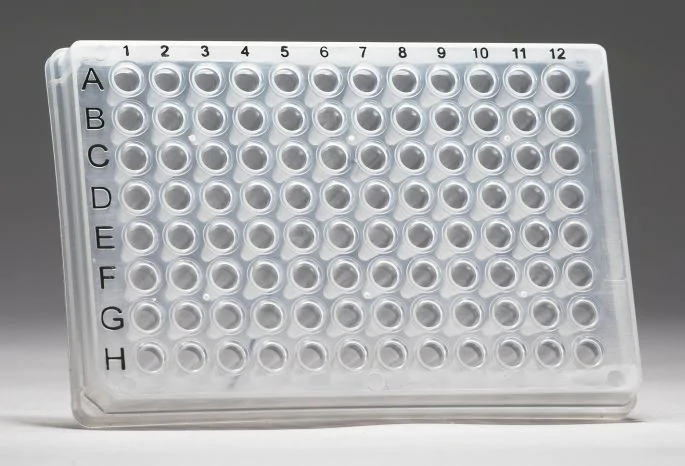ScienCell's GeneQuery™ Human Hepatic Steatosis qPCR Array Kit (GQH-HST) is designed to facilitate gene expression profiling of 88 key genes involved in hepatic steatosis pathogenesis. Hepatic steatosis, also known as fatty liver disease, refers to the accumulation of excessive triglycerides and other lipids in hepatocytes, mainly due to defective fatty acid metabolism. The most common causes of hepatic steatosis include hepatic insulin resistance, alcoholism, obesity or imbalance between energy intake and consumption, and genetic inheritance. Brief examples of how included genes may be grouped are shown below:
- Insulin signaling pathways: - SOCS3, PPARGC1A, AKT1, MTOR, GSK3B, INSR, IRS1, FOXO1, PIK3R1, SOCS3, SREBF1
- Cholesterol metabolism: - APOC3, APOA1, APOB, APOE, LDLR, PPARG, SREBF1, SREBF2, NR1H3, CYP2E1
- Carbohydrate metabolism: - G6PC, G6PD, ACLY, PCK2, PDK4, RBP4, GSK3B
- Beta-oxidation: - CPT1A, CPT2, FABP1, ACADL, ACOX1, AKT1, CD36, MTOR
- Adipokine signaling pathways: - PPARGC1A, MTOR, LEPR, IRS1, ADIPOR1, ADIPOR2, NFKB1, SLC2A1, SLC2A4, TNF
- Hepatotoxicity steatosis: - CD36, FASN, LPL, SCD, PPARA, SREBF1
Genes implicated in -
- Type II diabetes: - IRS1, INSR, MAPK8, SLC2A2, SLC2A4, XBP1, TNF, PKLR, PNPLA3
- Non-alcoholic fatty liver disease: - PNPLA3, SQSTM1, INS, GPT, ADIPOQ, TNF, SLC17A5, LEP, KRT18
- Reye's syndrome: - ACADM, OTC, HMGCL, HADHA, OAT, ASS1, HMGCR, CES1
- Lipodystrophy: - LMNA, LEP, IRS4, PDE3B, PTRF, GFPT1
GeneQuery™ qPCR array kits are qPCR ready in a 96-well plate format, with each well containing one primer set that can specifically recognize and efficiently amplify a target gene's cDNA. The carefully designed primers ensure that: (i) the optimal annealing temperature in qPCR analysis is 65°C (with 2 mM Mg^2+ , and no DMSO); (ii) the primer set recognizes all known transcript variants of target gene, unless otherwise indicated; and (iii) only one gene is amplified. Each primer set has been validated by qPCR with melt curve analysis, and gel electrophoresis.
This kit is designed to facilitate gene expression profiling of 88 key genes involved in hepatic steatosis pathogenesis.



